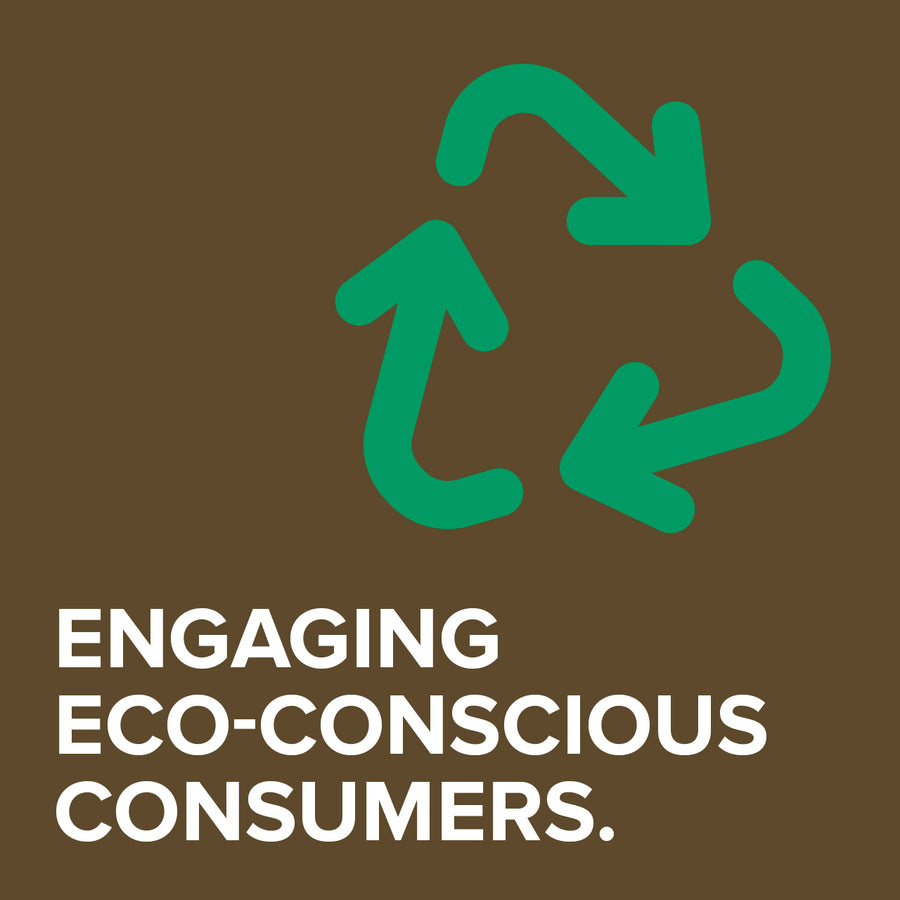Engaging Eco-conscious Consumers
26 April 2024

Are you missing out on a huge market of eco-conscious consumers? Discover the mindset behind this growing movement and how your brand can authentically connect with them.
In today's world, the term "eco-conscious consumer" is popping up more and more. But what does it really mean? These are individuals who make purchasing decisions with the environment in mind. They consider the impact of products on the planet, from materials and production methods to how it's packaged and shipped.
The importance of sustainability is undeniable. Consumers are increasingly worried about issues like climate change, pollution, and resource scarcity. They want to support businesses that reflect their own desire to leave the world a better place. This eco-conscious movement is transforming the way companies operate and engage with their customers.
The Rise of the Eco-conscious Consumer
It's not just a buzzword anymore; sustainability is here to stay. Several factors are contributing to the growing influence of eco-conscious consumers:
- Young Leaders: Millennials and Generation Z are leading the charge when it comes to adopting sustainable habits. These generations are deeply concerned about the future of our planet, and they're demanding more from the brands they support.
- Post-Pandemic Shift: The global pandemic has had an interesting side effect. People started re-evaluating their consumption patterns and became more mindful of their impact on the world. This has led to a surge in support for ethical and sustainable shopping.
- Beyond Just a Trend: Nowadays, consumers expect companies to demonstrate a genuine commitment to environmental responsibility. Eco-consciousness is no longer a niche concern; it's becoming a fundamental expectation across industries.
How Brands Can Engage Eco-conscious Consumers
Eco-conscious consumers are savvy. They're looking for more than simple "green" marketing slogans. To build trust and loyalty with this discerning group, brands need to walk the walk, not just talk the talk. Here's how:
- Action over Words: Consumers are tired of empty buzzwords. Instead of vague claims, showcase concrete actions. Highlight things like sustainable materials, ethical manufacturing processes, and initiatives to reduce your carbon footprint.
- Embrace Transparency: Be open and honest about your sustainability journey. Don't be afraid to share both your successes and the challenges you face. This authenticity resonates with eco-conscious consumers.
- Two-Way Conversation: Create opportunities for dialogue and engagement with your customers. Invite their feedback, ask for their input on sustainability initiatives, and show them that their voices matter.
- Learn from the Leaders: Brands like Patagonia and Allbirds are leading examples of successfully engaging eco-conscious consumers. Patagonia's commitment to repair and reusability, and Allbirds' focus on natural materials have built powerful connections with environmentally minded shoppers.
The Power of Sustainable Branding
Incorporating sustainability into your brand isn't just a nice thing to do – it's smart business. Here's why:
- Magnet for Eco-Conscious Shoppers: Consumers are more likely to choose brands aligned with their values. Strong sustainable branding positions you to attract and connect with this growing, influential market segment.
- Building Loyalty that Lasts: When consumers perceive a brand as responsible and ethical, it creates deeper trust and loyalty. This translates into repeat customers and powerful brand advocates.
- Standing Out from the Crowd: With so many brands vying for attention, having a strong sustainability focus helps you differentiate yourself. It allows you to communicate a unique story and mission that resonates with consumers.
- Design Matters: Graphic design plays a crucial role in conveying your sustainability message. Strategic use of colours, fonts, imagery, and recycled materials in packaging can all reinforce your commitment to the environment.
Conclusion
The rise of the eco-conscious consumer is a reality that brands can no longer ignore. By understanding what motivates these consumers, adopting transparent practices, and building a genuine sustainability story, businesses can tap into this powerful market.
Remember, this is an ongoing journey. In addition to the strategies already discussed, companies can explore additional paths like:
- Sustainable Packaging: Minimise your environmental impact with thoughtful packaging choices – recycled materials, minimal design, and compostable options.
- Environmental Partnerships: Collaborating with environmental organisations demonstrates your commitment and helps amplify your sustainability efforts.
Engaging with eco-conscious consumers is more than just a trend; it's ensuring your business is future-proof and truly contributing to a healthier planet.
Are you ready to embrace sustainability and attract those eco-conscious consumers?
At Absolute Design, we understand the unique challenges and opportunities faced by eCommerce businesses. We're proud to have won the Best Sustainability Initiative at the 2023 eCommerce Awards, and we work closely with eco-conscious businesses and tech partners to create truly sustainable solutions.
Let's chat! Contact us to learn how you can reduce your eCommerce carbon footprint and create a business strategy that aligns with both your values and the increasing demands of today's consumers.
Contact Us to discuss how we can help increase sales and boost your online performance!
INSIGHTS
CASE STUDIES
Are you excited to get your next project up and running? Or are you unsure what is dragging you down?









